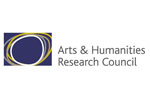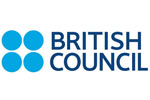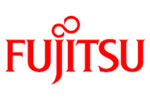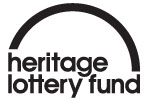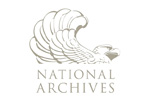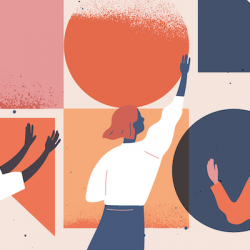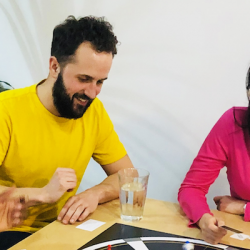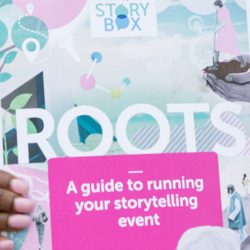“I’m besotted with it. They’re calling it a “digital time machine” and, this being the age of Wikiality, anyone can contribute. What’s history? Whatever you pin.”
The Guardian
The problem
Local communities are increasingly divided and cultural participation can reflect this. Local and national organisations find it hard to bring together different groups in an engaging way.
Historypin is very much focused on community engagement using imagery to get people connecting through stories and locations. It made sense to The Brooklyn Museum to release our collection of images in a way that would enable and foster this dialogue.
Shelley Bernstein, Brooklyn Museum
The Solution
A digital archive that supports the sharing of local stories and photos.
I can’t believe I’ve met someone who’s met Elvis Presley and also carried Winston Churchill’s coffin. It’s made me want to ask my family to dig out all their old photos.
Tommy Underwood, age 13
So far…
- 4000+ cultural organisations using it
- 100,000+ storytellers, archivists and citizen historians contributing
- 350,000+ stories pinned to around 32,000+ projects in over 2,500+ cities.
Launch video from 2011:
Team
-
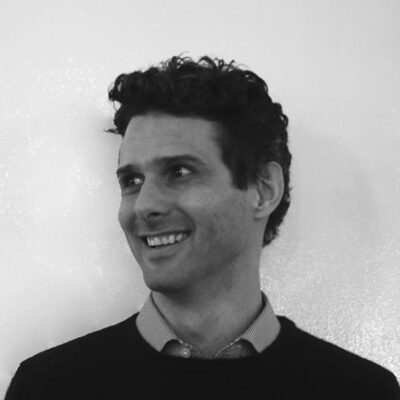 Duncan B
Commercial Director
Duncan B
Commercial Director
-
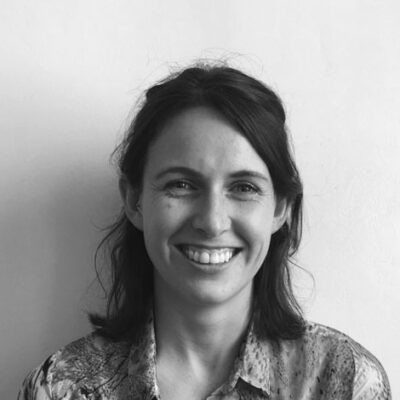 Immy
Innovation Lead
Immy
Innovation Lead
-
 Jon
Shift Collective
Jon
Shift Collective
-
 Louise
Innovation Lead
Louise
Innovation Lead
-
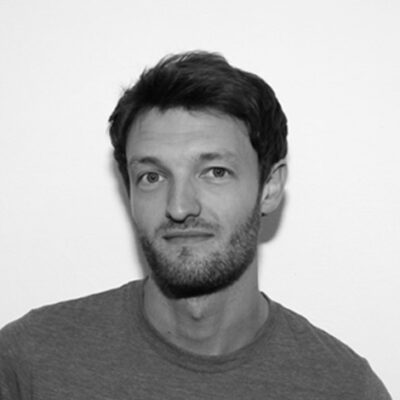 Nick
Founder
Nick
Founder
-
 Tori
Co-founder
Tori
Co-founder
Historypin
Research
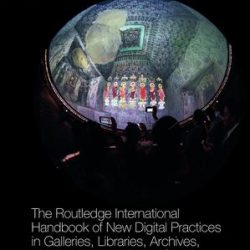
Massive Digital Community Archives in Colombia: An International Partnership Towards Peace
November 18, 2019
This chapter in The Routledge International Handbook of New Digital Practices in Galleries, Libraries, Archives, Museums and Heritage Sites explores a partnership between the National Library of Colombia, with its national network of public libraries, and Historypin.org, a global non-profit that seeks to strengthen communities through local history and story-sharing. This project highlights: the potential role of cultural heritage organisations to make lasting social impact through civic engagement, methods for designing digital content creation and community engagement along with technical infrastructure, the democratising potential of placing the power of cultural narrative in the hands of many, and how a digital cultural project allowed us to reach an entire nation during an essential time of peace-building.
See other chapters in this book here.
Diego Merizalde and Jon Voss
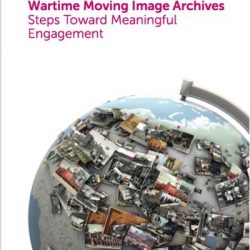
Taking a User-Centered Design Approach with the US National Archives
July 14, 2016
Historypin began working with the US National Archives in 2014 to take a user-centered design approach to cultural heritage and develop a broad strategy of community engagement. With a focus on NARA’s Wartime Films, we’ve worked with leading curators and preservationists at NARA to begin reaching much broader audiences and increase awareness and creative reuse of the United States’ rich cultural heritage.
Jon Voss and Kerri Young
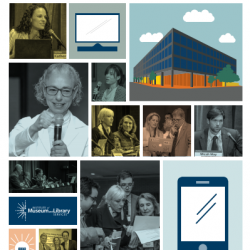
IMLS Focus: The National Digital Platform
July 23, 2015
On April 28, 2015, the Institute for Museum and Library Services (IMLS) convened library, archive, and museum professionals to, in the words of Maura Marx, IMLS Director, “advance a vision of easy, seamless and reliable access for all Americans to the digital content and services that will enrich and improve their lives.” Jon Voss represented Historypin on a panel about Linked Open Data and crowdsourcing.

From Crowdsourcing to Knowledge Communities: Creating Meaningful Scholarship Through Digital Collaboration
April 2, 2015
In this paper, we share some of the findings of our Mellon-funded crowdsourcing research with Stanford University, with a focus on tools we found helpful in the process of identification, outreach, and collaboration with knowledge communities.
Jon Voss and Kerri Young
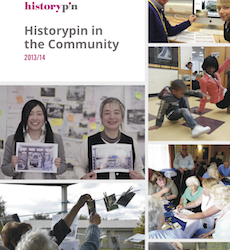
Historypin in the Community: 2013/2014
March 3, 2015
In the last couple of years, we’ve seen Historypin used to connect generations in Japan, to draw in rich life stories in Australia and even to inspire a mural in East London. These sorts of projects are at the core of our mission to build better local social connections through a shared sense of place and history.
Each case study gives you a brief glimpse of the people behind these projects and what they’ve achieved.
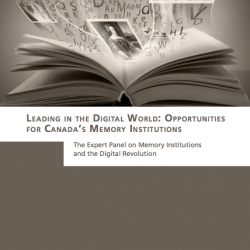
Leading in the Digital World: Opportunities for Canada’s Memory Institutions
February 4, 2015
Jon: “I was fortunate to be a reviewer on this important publication examining the future of Canada’s memory institutions, though the findings are applicable worldwide. The authors of the paper take a bold stance on what is necessary for leadership in the digital domain.”
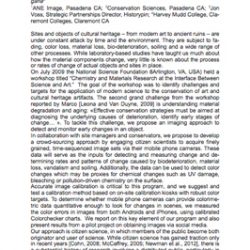
Citizen Science and Mobile Phone Cameras as Tools for Monitoring World Heritage
November 1, 2013
Early research on a proposed project to combine citizen science techniques and photo gathering to examine and monitor the aging and deterioration of objects of cultural heritage. Published in Built Heritage 2013 Monitoring Conservation Management.
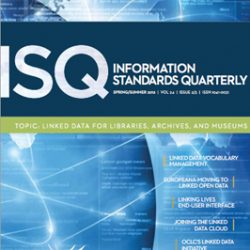
LODLAM State of Affairs
April 2, 2012
Article on the community evolving around Linked Open Data in libraries, archives and museums.
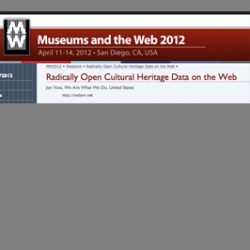
Radically Open Cultural Heritage Data on the Web
April 1, 2012
This paper examines how a cultural, technological, and legal environment is enabling a growing ecosystem of open historical data. Published on Museums and the Web.
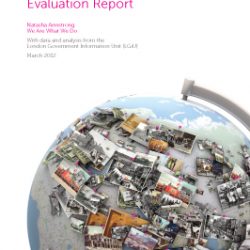
Pinning Reading’s History: Evaluation Report
March 24, 2012
Analysis of the social impact of Pinning Reading’s History, a project in Reading, UK, with data and analysis from the London Government Information Unit (LGiU).
Natasha Armstrong
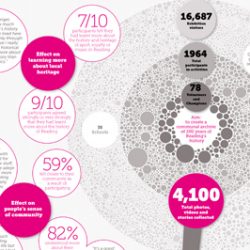
Impact Infographic
March 23, 2012
Depiction of the social impact of Pinning Reading’s History, a project in Reading, UK, with data and analysis from the London Government Information Unit (LGiU).
Tori Flower & Kate Ferrier
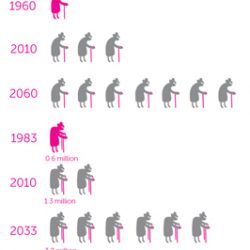
The State of Intergenerational Relations
October 2, 2011
Infographic illustrating the growing inter-generational divide, the growing ageing population, and prevalence of loneliness amongst the elderly.
Tori Flower and Charlotte Heal
Comment
King’s Cross Story Palace
What is King’s Cross Story Palace? King’s Cross Story Palace is a two year project that tells some of the …
Using design to solve the problems of rural isolation and loneliness amongst the elderly
(Re)Introducing the Shift US Team
Since 2011, Shift has had a presence in the United States and has been growing since then. Originally located in …
Cultural Heritage and Social Change Summit: One Year On
This report summarizes some of the core findings of the Cultural Heritage and Social Change Summit–themes that have also arisen in many other cultural heritage conferences and meetings over the past year:
- Safe Space for Disruptive Dialogue
- Funding for Transformative Gatherings
- Equitable and Ethical Collaboration
- Diversifying Technology Production in Cultural Heritage Spaces
- Integrating Community Archives Into Traditional Cultural Heritage Spaces
- Social Innovation and Rethinking Goals and Objectives in the Cultural Heritage Sector
What have we learnt and now what? Part ten of Connecting Well.
David Robinson is Shift’s founder and a community worker in east London. He is currently exploring new work on social isolation at the Marshall Institute. This is the tenth in a series of blogs.
Beauty of Care: Part nine of Connecting Well
David Robinson is Shift’s founder and a community worker in east London. He is currently exploring new work on social isolation at the Marshall Institute. This is the ninth in a series of blogs.
The Heart of the Matter: Part eight of Connecting Well
David Robinson is Shift’s founder and a community worker in east London. He is currently exploring new work on social isolation at the Marshall Institute. This is the eigth in a series of blogs.
Relational offset, the new imperative: Part seven of Connecting Well.
David Robinson is Shift’s founder and a community worker in east London. He is currently exploring new work on social isolation at the Marshall Institute. This is the seventh in a series of blogs.
Humbug or Hallelujah? Part six of Connecting Well
David Robinson is Shift’s founder and a community worker in east London. He is currently exploring new work on social isolation at the Marshall Institute. This is the sixth in a series of blogs.
Joining the Dots: Part five of Connecting Well
David Robinson is Shift’s founder and a community worker in east London. He is currently exploring new work on social isolation at the Marshall Institute. This is the fifth in a series of blogs.
Land of our children: Part four of Connecting well.
David Robinson is Shift’s founder and a community worker in east London. He is currently exploring new work on social isolation at the Marshall Institute. This is the fourth in a series of blogs.
Doing what anyone would do: Part three of Connecting well.
David Robinson is Shift’s founder and a community worker in east London. He is currently exploring new work on social isolation at the Marshall Institute. This is the third in a series of blogs.
Human beings being human: Part two of Connecting well
David Robinson is Shift’s founder and a community worker in east London. He is currently exploring new work on social isolation at the Marshall Institute. This is the second in a series of blogs.
Connecting Well
David Robinson is Shift’s founder and a community worker in east London. He is currently exploring new work on social isolation at the Marshall Institute. This is the first in a series of blogs.
Gamification to make story sharing impactful and fun
Our Senior Service designer explains how the Historypin team are injecting elements of gamification into their design process for their …
Design principles for Historypin’s Storybox
Bringing people together to share stories and experiences with one another has always been intended to be at the core …
How to co-create the future of storytelling
In an age of Brexit and Trump, bridging divided communities might seem like a far fetched dream. But at Historypin, …
Death by Social Media
Jon Voss runs Shift’s US operations, with a major focus on Historypin. Our deep intergenerational work has pulled us recently …
Historypin & LODLAM at EuropeanaTech 2015
This talk at the National Library of France from February 2015 highlights some of the ways Historypin is being leveraged to increase access to cultural heritage content and strengthen local communities. I also take a quick look at the growing culture around Linked Open Data in Libraries, Archives and Museums and how data sharing may soon be the new norm for cultural heritage.
The First World War Centenary on Historypin
A home for local community First World War projects. Today we’re excited to launch the First World War Centenary hub on Historypin, a home for local community groups running First World War commemorative activities.
A closer look at NT100 2013 project, Historypin
Historypin was launched in 2011, after two years of R&D and beta testing, with a mission to help bring people together, from across different generations and cultures, to share and explore the history of their communities…
4 Major Efforts to Share European Cultural Heritage
This winter has seen a flurry of activity around a number of projects related to Europeana content, and the incredible work of partners across Europe helping to increase the discovery and reuse of European cultural heritage.
‘The simple habits and reciprocities of everyday life.’
This is how David Halpern describes the focus of work that examines and values the role of social capital in our communities. …
Can One Story Change the World?
Jon Voss of Historypin.org presents “Can One Story Change the World?” at the Chemical Heritage Foundation in Philadelphia.
Historypin share their top tips
Historypin is a suite of online tools designed to help museums, libraries and community groups share their collections of archived materials (e.g. historic photos) with as wide an audience as possible…
Research from Libraries, Archives & Museums on Historypin
We’re fortunate to work with many cultural heritage partners who are putting a lot of thought and research into the ways they can share their collections with the world, from physical exhibitions to digital engagement strategies, and everything in between…
Society of American Archivists Keynote
Jon Voss, Strategic Partnerships Director at Historypin, during opening plenary of the Society of American Archivists Annual Meeting, August 9, 2012. This is audio of the talk together with slides.
The Participatory Museum
When real change comes, it doesn’t come from any one place. It emerges, gradually, from many different places all at once…
Historypin: Libraries, Archives & Museums Sharing Content
Nick talking at Stanford University on Historypin: Libraries, Archives & Museums Sharing Content.
Enjoyable things for local communities to do together
The After the Riots report from the Riots Communities and Victims Panel was a really good example of how to emerge …
Opinion: Considering SOPA in Cultural Heritage
I’m guessing you’ve already heard of the two bills that have been introduced before Congress in the United States, the Protect IP Act (PIPA) in the Senate and the Stop Online Piracy Act (SOPA) in the House…
Mapping in the 4th dimension TEDxNHH
Nick talks atTEDx NHH, hosted by the Historypin Norwegian School of Economics, in Bergen.
Funding Historypin
Sincethe launch of Historypin in New York July this year, we’ve been blown away by people’s response to it…
Smithsonian Institution talk on Linked Open Data
Jon Voss addresses the Smithsonian Institute and explores the fundamental elements of Linked Open Data and discover how rapidly growing access to metadata within the world’s libraries, archives and museums is opening exciting new possibilities for understanding our past, and may help in predicting our future.
Coverage
New Mural in Beacontree
Creative Review, 28th October 2014
Former teacher pins hopes for images of Frome history online
Frome Standard, 21st August 2014
Peoria Historical Society Uses Innovative Archives to Show Area’s History
CBS 31 News, 27th July 2014
Historypin app: Opening up local history to the public’s favourite mobile device
London Community News, 11th March 2013
Web Sites With a Historical Bent Join a Place to an Image
New York Times, 5th September 2012
Mapping Reading’s past with Historypin
Get Reading, 21st September 2012
Bringing social capital back to life
The Times, 31st March 2012
Q and A with Nick Stanhope, Creator of Historypin
Smithsonian Magazine, 10th August 2011
Historypin Launches, Shows Your World As It Was
Mashable, 12th July 2011
“Old Meets New: ‘Historypin’ Is a Map-Based Time Capsule for Vintage Photos”
Time Techland, 11th July 2011
Our ghosts in the machine
Sunday Times, 18th July 2010
“Picture the Past: Historypin Mashes Up Archived Photos with the Present”
Good, 15th July 2011
Local history buffs have a new toy
Washington Post, 7th July 2011
Photography has entered the fourth dimension. And I’m going with it
The Guardian, 4th July 2010
Awards

Best Nonprofit/charity website, 2012

Sunday Times App List 2012

The Social Tech Guide: The World’s Most Inspiring Social Innovations Using Digital Technology

Award for Best Education & Reference Website, 2012

Winner of the inaugural History Today Digital History Award, 2014

Best Websites for Teaching and Learning, 2014

